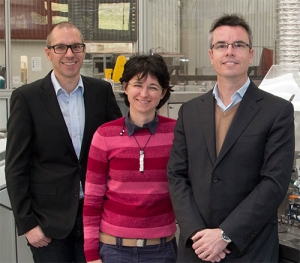
A Geelong joint venture manufacturing specialist fibre materials has received $1.2 million government grant.
The grant is to enable HeiQ Australia to establish an industrial scale manufacturing facility under the Next Generation Manufacturing Investment Program.
The venture will manufacture short polymer fibre (SPF) materials for the global performance additives market.
SPF materials add various functions to a wide range of products including textiles, coatings, electronics, cosmetics and medical devices.
The award-winning process to develop the short fibre materials were pioneered at Deakin University’s Institute for Frontier Materials (IFM).
HeiQ Australia involves Geelong-based biotechnology company, Cytomatrix and Swiss high-tech textiles company HeiQ Materials.
HeiQ Australia chief executive officer Dr Murray Height said venture aimed to build a manufacturing capability for the industrial production of high-value short fibre materials for the domestic and export markets.
“HeiQ Australia will scale up and industrialise the process developed by Cytomatrix and the IFM/School of Engineering team, and will actively position novel short fibre materials in the global market for high-performance additive materials,” Dr Height said.
HeiQ Australia was one of 11 Victorian businesses to receive $27.4 million to establish or expand high value manufacturing operations.
Complementary investment by each company would bring the total investment in high value manufacturing in Victoria under the program to $75 million.
Minister for Industry, Innovation and Science Christopher Pyne said the investment would help to stimulate economic activity and increase business competitiveness in Victoria.
“This investment will help to attract private investment in the sector, building our advanced manufacturing capabilities,” Mr Pyne said.
Victorian Industry Minister Lily D’Ambrosio said Victorian manufacturing firms were keen to invest in extending their capability.
“The programme will encourage the growth of advanced manufacturing operations including in the defence, transportation, pharmaceutical and medical device sectors,” Ms D’Ambrosio said.
“It will leverage capital investment in precision engineering, robotics and advanced composite materials development, and support businesses to access global supply chains.”
The $60 million Next Generation Manufacturing Investment Programme is jointly funded by the Australian, Victorian and South Australian Governments.
The programme is a key part of the Australian Government’s $155 million Growth Fund, for employees and businesses affected by the closure of automotive manufacturing operations in Victoria and South Australia.






